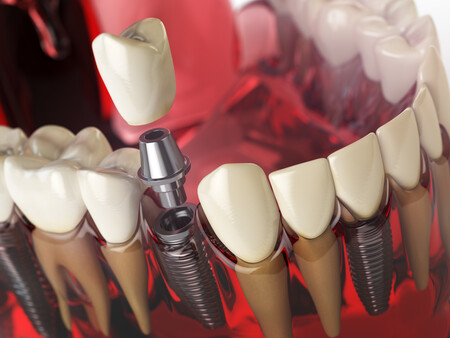
nanoVIS Ti™ Surface Technology
Advanced Solutions for Titanium Dental Implants
Nanovis® is an innovative surface technology company dedicated to solving unmet clinical needs through advanced dental implant technology. nanoVIS Ti™ Surface Technology is making waves in the dental industry with nanotechnology in dentistry for bone-to-implant osseointegration and soft tissue attachment, as well as decreased bacterial colonization.

Common Problems Associated with Titanium Dental Implants
Common Problems Associated with
Titanium Dental Implants
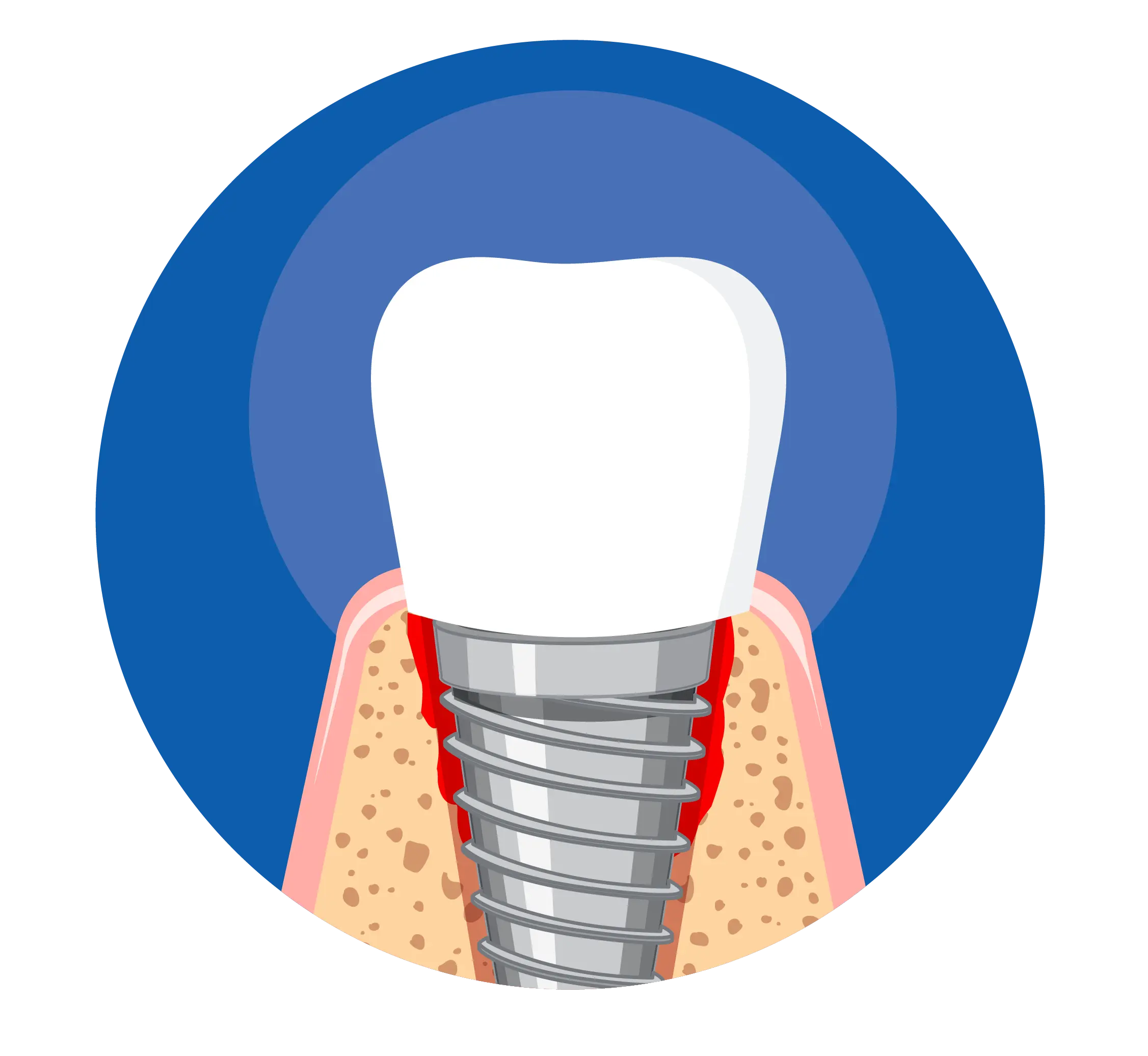
Problem: Loosening
The term “aseptic loosening” refers to the loosening of an implant from native bone without infection or trauma complications. Excessive motion where the bone and implant interface causes aseptic loosening. It is one of the most common reasons for implant failure and revision surgery and can affect multiple types of implants across dental specialties.

Our Solution
Dental implants enhanced with nanoVIS Ti™ Surface Technology encourage osseointegration between implant and bone and promote soft tissue attachment. With a rapid establishment of implant support, micromotion is reduced, substantially lessening the chances of aseptic loosening.

Problem: Loosening
The term “aseptic loosening” refers to the loosening of an implant from native bone without infection or trauma complications. Excessive motion where the bone and implant interface causes aseptic loosening. It is one of the most common reasons for implant failure and revision surgery and can affect multiple types of implants across dental specialties.

Our Solution
Dental implants enhanced with nanoVIS Ti™ Surface Technology encourage osseointegration between implant and bone and promote soft tissue attachment. With a rapid establishment of implant support, micromotion is reduced, substantially lessening the chances of aseptic loosening.
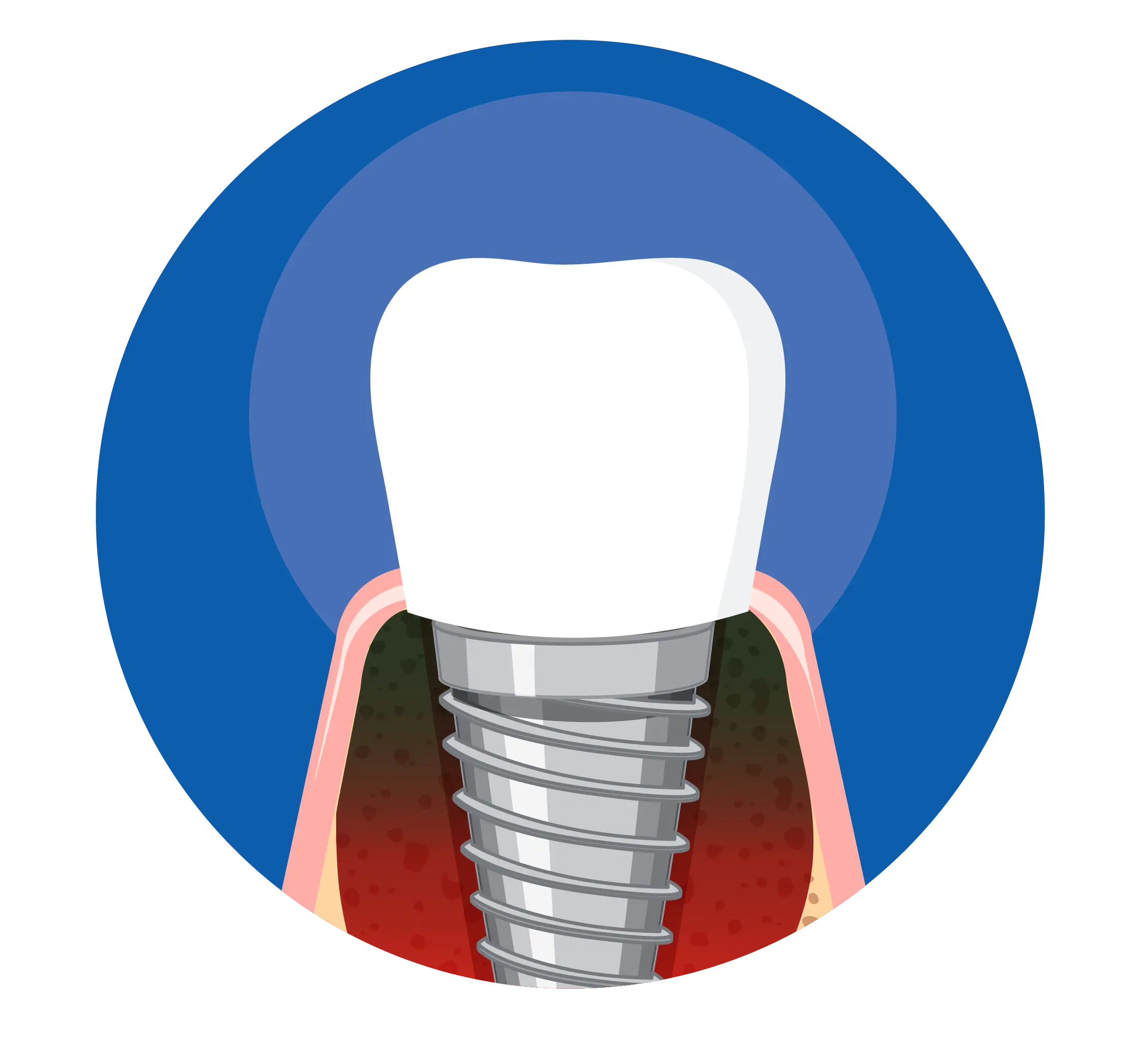
Problem: Infection
Implants can fail due to a decline in systemic health, bacterial accumulation or trauma. In cases of bacterial colonization, perioperative contamination is a significant risk factor. Infections cause several problems, including inflammation, that jeopardize an implant’s stability.

Our Solution
Titanium implants enhanced with nanoVIS Ti Surface Technology™ promote swift soft tissue attachment through increased vascularization. This reduces spaces where bacteria may accumulate, and restores healthy blood flow to allow the body’s immune system to respond naturally to potential bacterial threats. Managing periodontal disease and supporting implant procedures with antibiotics can also help prevent implant failure.

Problem: Infection
Implants can fail due to a decline in systemic health, bacterial accumulation or trauma. In cases of bacterial colonization, perioperative contamination is a significant risk factor. Infections cause several problems, including inflammation, that jeopardize an implant’s stability.

Our Solution
Titanium implants enhanced with nanoVIS Ti Surface Technology™ promote swift soft tissue attachment through increased vascularization. This reduces spaces where bacteria may accumulate, and restores healthy blood flow to allow the body’s immune system to respond naturally to potential bacterial threats. Managing periodontal disease and supporting implant procedures with antibiotics can also help prevent implant failure.
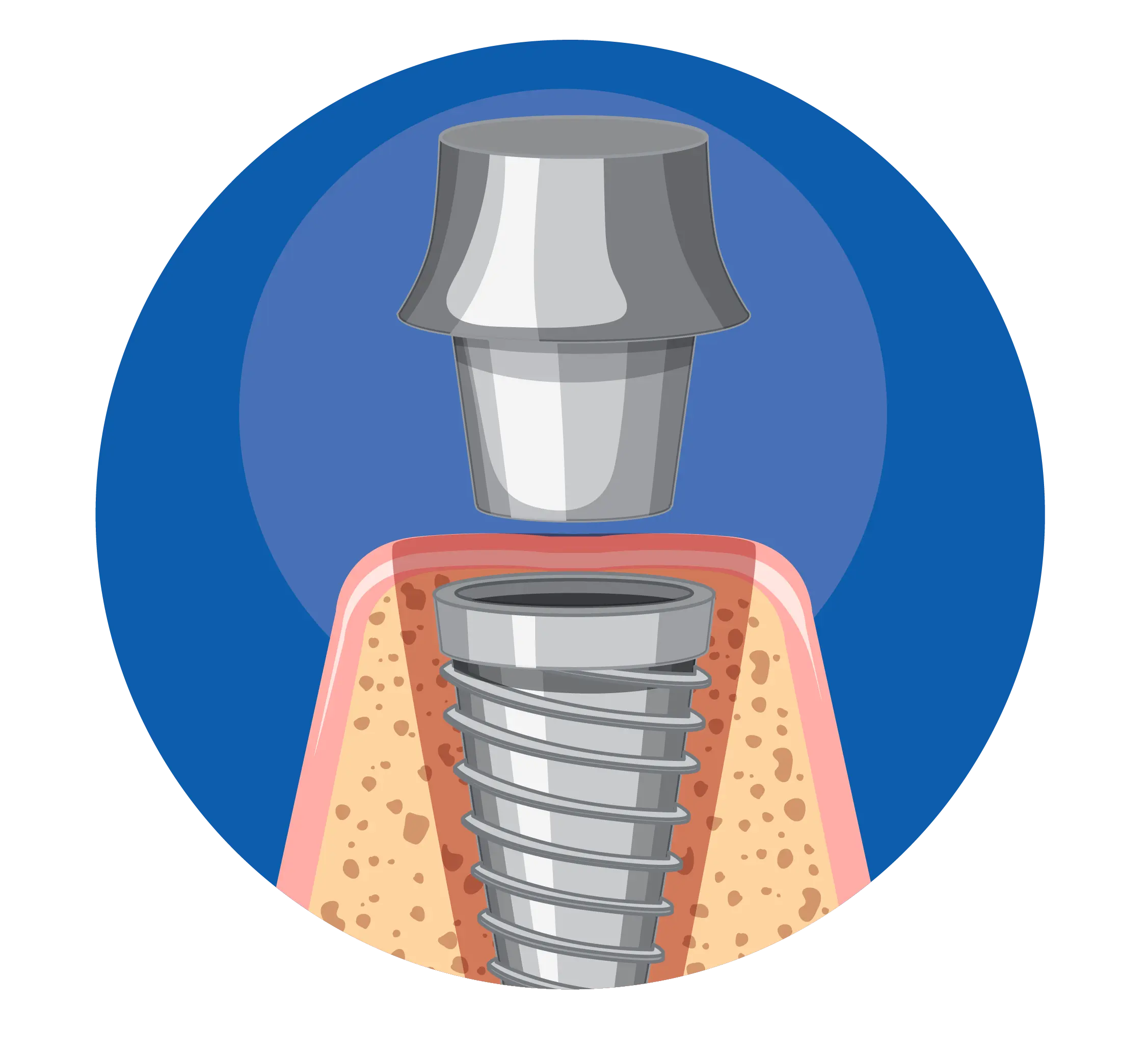
Problem: Abutment
It is common for dental implants to fail due to insufficient osseointegration, which reduces abutment of the implant against bone. Implants that are misplaced, move or lose surrounding bone of more than 1.0 mm in the first year and more than 0.2 mm in the next year are considered failures. Peri-implantitis can lead to bone loss surrounding the implant. Abutment-screw loosening accounts for up to 33% of all post-implant prosthetic complications.

Our Solution
While comprehensive management of soft tissue health is critical to the success of implant treatment, nanoVIS Ti Surface Technology™ ensures the implant itself encourages the adhesion and healing of soft tissue at the implant site. In concert with a treatment plan including follow-ups and proper oral hygiene, soft tissue problems can be prevented.

Problem: Abutment
It is common for dental implants to fail due to insufficient osseointegration, which reduces abutment of the implant against bone. Implants that are misplaced, move or lose surrounding bone of more than 1.0 mm in the first year and more than 0.2 mm in the next year are considered failures. Peri-implantitis can lead to bone loss surrounding the implant. Abutment-screw loosening accounts for up to 33% of all post-implant prosthetic complications.

Our Solution
While comprehensive management of soft tissue health is critical to the success of implant treatment, nanoVIS Ti Surface Technology™ ensures the implant itself encourages the adhesion and healing of soft tissue at the implant site. In concert with a treatment plan including follow-ups and proper oral hygiene, soft tissue problems can be prevented.
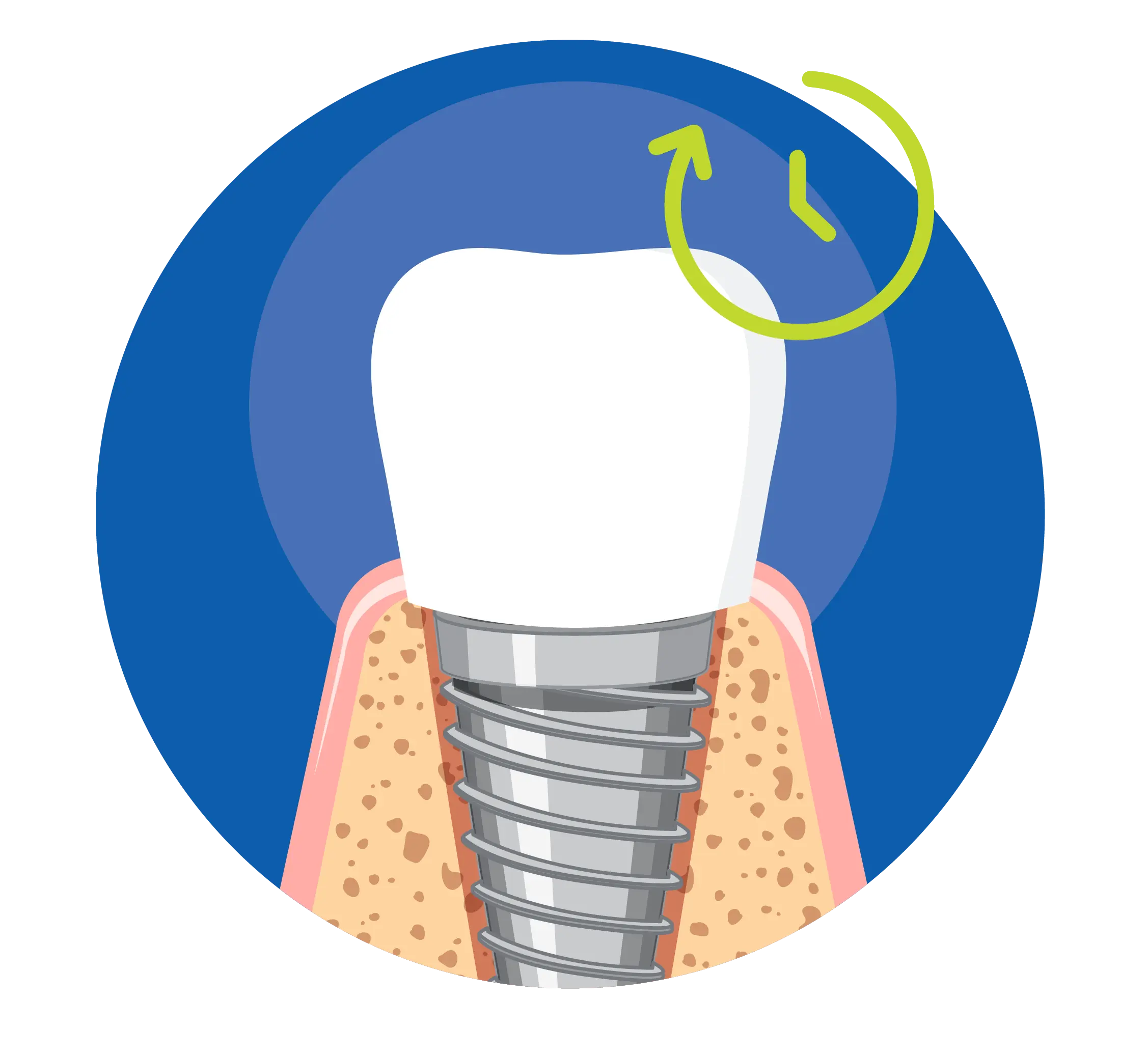
Problem: Implant Longevity
There are many reasons why implants fail early or long-term. Poor osseointegration and soft tissue complications are chief among them. Without proper osseointegration, loosening and bone loss are concerns. If the soft tissue around the implant doesn’t heal well, poor implant site health and bacterial colonization cause problems. Placement, bone growth, soft tissue restoration and a solid post-procedure treatment plan that safeguards the implant are all integral to the lifespan and longevity of implants.

Our Solution
nanoVIS Ti Surface Technology™ improves the already excellent lifespan of titanium implants. Its advanced nanotechnology is proven in dental and orthopedic applications to trigger osseointegration of bone to implant, promote soft tissue attachment, and reduce the colonization of bacteria. When a properly placed implant is correctly supported by bone and tissue, issues that cause implants to fail are avoided, increasing longevity.

Problem: Implant Longevity
There are many reasons why implants fail early or long-term. Poor osseointegration and soft tissue complications are chief among them. Without proper osseointegration, loosening and bone loss are concerns. If the soft tissue around the implant doesn’t heal well, poor implant site health and bacterial colonization cause problems. Placement, bone growth, soft tissue restoration and a solid post-procedure treatment plan that safeguards the implant are all integral to the lifespan and longevity of implants.

Our Solution
nanoVIS Ti Surface Technology™ improves the already excellent lifespan of titanium implants. Its advanced nanotechnology is proven in dental and orthopedic applications to trigger osseointegration of bone to implant, promote soft tissue attachment, and reduce the colonization of bacteria. When a properly placed implant is correctly supported by bone and tissue, issues that cause implants to fail are avoided, increasing longevity.
Decrease implant failure and create better outcomes with nanoVIS Ti™ Surface Technology.
nanoVIS Ti™ Surface Technology At-a-Glance

Nanotechnology Designation with comparative surface data showing Mesenchymal Stem Cell and Osteoblast mineralization, on-label

Better osseointegration and soft tissue attachment, reducing bacterial colonization

Multiple 510k clearances and regulatory validations on both CP Ti and Ti alloys

ISO 13485 compliant controlled QMS process operated by Nanovis

Sales force and surgeon excitement with increased technology pricing and market share wins
Ready to discover more?
Fill out the fields below to download our Dental Executive Summary.
Nanovis® is seeking licensing partners in the dental implant market.

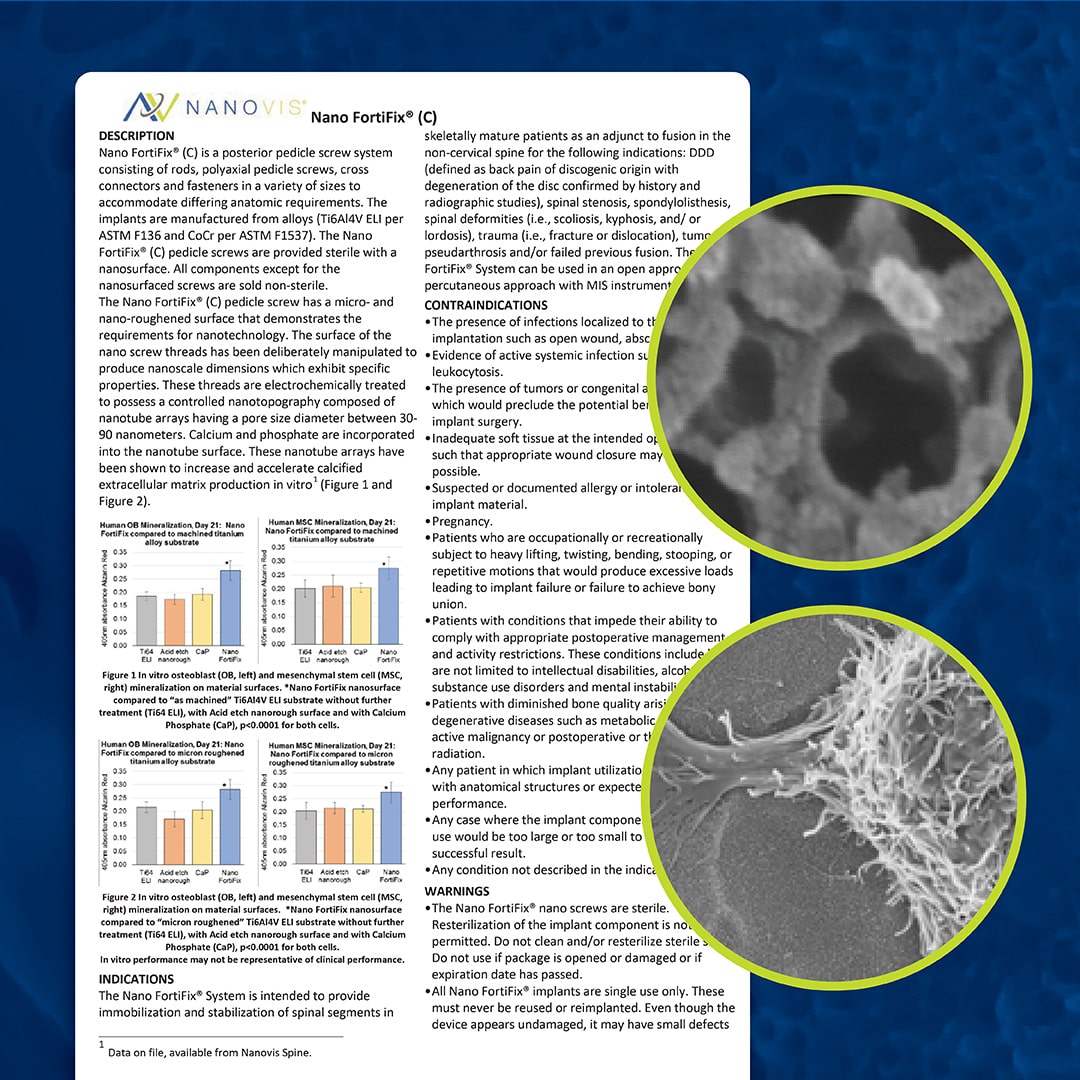

Connect With Us
Columbia City, IN 46725
United States
Recent News